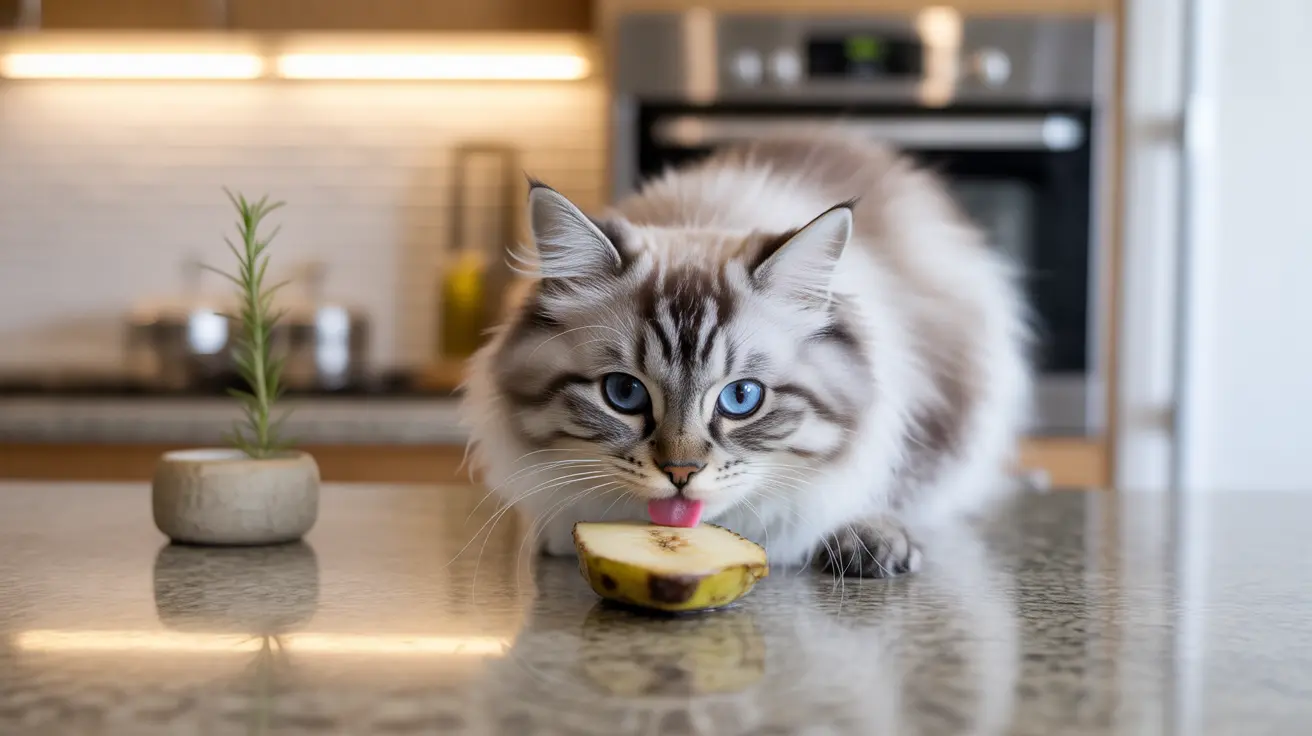If you've ever wondered whether your feline friend can safely snack on plantains, you're not alone. While cats can technically eat plantains without immediate toxic effects, these starchy fruits aren't an ideal addition to your cat's diet. Let's explore everything you need to know about cats and plantains, including safety considerations, nutritional impact, and proper serving guidelines.
Understanding the relationship between cats and plantains is crucial for responsible pet ownership. As obligate carnivores, cats have specific dietary needs that primarily revolve around meat-based proteins. While plantains aren't toxic, their role in feline nutrition requires careful consideration.
Safety Considerations for Feeding Plantains to Cats
Plantains themselves are non-toxic to cats, making occasional consumption generally safe. However, it's crucial to distinguish between regular plantains and plantain lilies (Hosta), which are highly toxic to cats and can cause severe illness.
The main safety concerns with plantains come from potential digestive issues. Cats' digestive systems aren't designed to process large amounts of plant matter, especially starchy foods like plantains.
Nutritional Impact on Feline Health
While plantains are nutrient-rich for humans, their nutritional profile doesn't align well with feline dietary needs. Cats require a diet high in animal protein and specific nutrients like taurine, which plantains don't provide.
Key nutritional considerations include:
- High carbohydrate content that cats struggle to digest
- Limited protein content
- Unnecessary vitamin C (cats produce their own)
- High fiber that may cause digestive upset
Proper Serving Guidelines and Precautions
If you choose to offer plantains to your cat, follow these essential guidelines:
- Serve only small, thin slices occasionally
- Always cook plantains thoroughly without seasonings or oils
- Monitor your cat for any adverse reactions
- Never make plantains a regular part of their diet
Understanding Your Cat's Dietary Needs
Cats are obligate carnivores, meaning they require a meat-based diet to thrive. Their digestive systems are specifically adapted to process animal proteins and fats, not plant-based carbohydrates like those found in plantains.
A proper feline diet should consist of:
- High-quality commercial cat food
- Adequate animal protein
- Essential amino acids, especially taurine
- Appropriate fat content
- Limited carbohydrates
Frequently Asked Questions
Can cats safely eat plantains, and how much is appropriate to give them?
Cats can safely eat small amounts of plantains occasionally. A thin slice a few times per week is the maximum recommended amount, though it's best to avoid making it a regular treat.
What are the potential digestive symptoms if a cat eats too many plantains?
Excessive plantain consumption can lead to vomiting, diarrhea, lethargy, loss of appetite, stomach pain, and potential dehydration. If these symptoms persist, consult a veterinarian.
Are plantains nutritionally beneficial for cats compared to their natural meat-based diet?
No, plantains offer minimal nutritional benefits for cats compared to their natural meat-based diet. Cats are obligate carnivores and require nutrients primarily found in animal proteins.
How should plantains be prepared before offering them to a cat?
Plantains should be thoroughly cooked without any seasonings, oils, or additives. Never serve raw, fried, or sweetened plantains to cats.
What is the difference between plantains and plantain lilies, and why is it important for cat owners?
Plantains are non-toxic fruit similar to bananas, while plantain lilies (Hosta) are toxic ornamental plants. This distinction is crucial as plantain lilies can cause serious illness in cats if ingested.
Conclusion
While cats can eat plantains in small amounts, they shouldn't be a regular part of their diet. Focus instead on providing your cat with appropriate, meat-based nutrition that meets their biological needs. If you choose to offer plantains as an occasional treat, do so sparingly and always monitor your cat for any adverse reactions.






